[Lovecraft Country Review with Joe Lipsett] "Strange Case" Has a Queer Problem
Each week Joe and Terry discuss the most recent episode of HBO’s Lovecraft Country, alternating between our respective sites.
Spoilers follow for episode 5 “Strange Case”.....
Episode 1.05 “Strange Case”: After making a devil's bargain with William, Ruby steps into the charmed shoes of a white woman, but her transformation only fortifies her resentment of the racial divide. A betrayal by Montrose unleashes Atticus' pent up rage, leaving Leti deeply disturbed and sending Montrose into the comforting arms of his secret lover.
TERRY
Last episode, man. It really opened up a lot of responses on Twitter and created a couple think pieces, particularly from Dani Bethea, who did an excellent job of digging into the way “A History of Violence” ended on a moment of violence against the transgendered/Two-Spirit Yahima (Monique Candelaria). That moment didn’t sit well with either of us, Joe. And truthfully, the more I think about it, the more it just wiggles into my brain. I’ve had friends on Twitter decide not to watch anymore because of how triggering it felt and how tasteless the reveal was.
I was hoping that it would be one of those situations where the following episode would add some post-context to the moment. I don’t think even if Episode 5 “Strange Case” added some posthumous anecdote, it’d even matter because of the way their brief life and death was used for shock value. There’s no beating around the bush, our characters Tic (Jonathan Majors) and Leti (Jurnee Smollett), upset over Yahima’s “disappearance” barely think twice about them.
Tic is more upset that his father has once again set roadblocks in her journey to finding and decoding the pages of Adam. Leti is mad that Tic beat up his father and walks around in barely contained rage. And Montrose (Michael Kenneth Williams) is back to sad sack self-hating homosexual...until a couple famous drag queens help drag the happiness out of him...which I know we’ll both have thoughts on, so we’ll dig into that a little later.
But, Joe, I’ve buried the lede! An episode named after Robert Louis Stevenson’s novella Strange Case of Dr Jekyll and Mr Hyde must have a metamorphosis, of sorts, and boy does it. The episode opens with a white woman (Jamie Neumann) luxuriating in the most rich person bed. It’s circular, situated in the center of the room, with tan sheets and blood red pillows. The woman looks at her hands in fear and distrust before racing to a mirror and shouting, “Wake up Ruby!”
Turns out the promise made by William (Jordan Patrick Smith) before they copulated on the stairs in “A History of Violence” came true and Ruby can roleplay as a white woman she names Hillary. Her resume gets her the coveted job at Marshall Fields as an Assistant Manager, no less. And she starts to see how the other side lives. The side that now sees her “like a human being,” in the words of William. And it’s true, she ignores the exceedingly large stack of money on William’s bedside counter because she enjoyed the day with the only currency she needed: whiteness. We see a montage of her day as a piece of Ntozake Shange’s seminal work For Colored Girls Who Have Considered Suicide / When the Rainbow is Enuf plays in the background. This combination gave me pause because it pulls from one of Shange’s more well-known segments but doesn’t feel completely appropriate with Ruby.
Maybe the juxtaposition works for some viewers, but while we’re looking at the white woman Ruby masquerades as, we’re given the powerful poem with lines like, “she’s been dead so long / closed in silence so long / she doesn’t know the sound of her own voice /her infinite beauty.” I suppose one could pull irony from this as it showcases Ruby, comfortable in her now-white skin, but this is a character who is strong and powerful and in love with her body, her voice and her inherent power. It feels disingenuous to me, particularly with Ruby. A moment that those who don’t know Shange’s work will think, “oh that’s a funky poem” but for those who studied her work in college, it just feels wrong.
Gosh, Joe. I buried the lede again! The transformation only works for a little bit and it involves a bloody transformation as each form--Hillary or Ruby--literally breaks out of the previous body in geysers of blood and viscus. It’s pretty gnarly, watching chunks of flesh drip off the body, stripped like pages from a book.
But I feel like I’m only starting to dig into what “Strange Case” is trying to say and I want to turn it to you before I just hog everything. What were your thoughts going into Episode 5, Joe? Did you appreciate the bloody and sloppy body horror “Strange Case” was serving? And what did you think of the reveal and the truth about Christina (Abbey Lee)’s relationship with William?
JOE
Well, Terry, congrats on anticipating the Christina/William twist well before the show tipped its hand! I’ll confess that I didn’t see it until you mentioned it offline last week and then all of the tell-tale signs were here in this episode, particularly in that moment when Christina tells Ruby that Capt. Lancaster (Mac Brandt) tried to kill William because he’s the heir...but we all know that’s actually Christina’s role. And while I didn’t love how long it took Ruby to understand what she was seeing when William began to transform, her angry exclamation “You’ve been William this whole fucking time?!” is pretty great.
Before I go any further, I should confess that I found this episode quite frustrating. The last two episodes have highlighted some really questionable creative decisions that actively have me rethinking whether this show is right for me, which is an unusual position to be in considering the warm welcome the show has received from some many mutuals online.
I should note that Ruby’s story in Matt Ruff’s novel is easily the book’s most polarizing. Her decision to masquerade as a white woman inspires a lot of conversation, particularly because Ruby is the most confident character in the book. She’s a woman who knows her value, who knows what she wants and she is continually frustrated at the roadblocks that have been set in front of her. When presented with a magical alternative that suddenly allows her to live the life she always wanted, she barely hesitates before accepting.
When we read the novel for the Horror Queers book club, Ruby’s willingness to turn her back on her race sat uneasy with most of us. We wanted her to be proud of who she is, even if it meant a life filled with disappointment. At the same time, we undeniably understood that that idealism was as much a reflection of our privileged positions as it was a 2020 perspective. Of course it’s completely understandable that a person who has literally struggled their entire lives would accept a solution that clears aways those obstacles, even if it means compromising on some values.
It’s a delicious moral quandary and one that I was excited to see the TV series tackle.
For part of the time, I think Misha Green and her team walk that razor’s edge wonderfully. Seeing Ruby-as-Hilary demean Tamara (Sibongile Mlambo), the woman who got the Marshall Fields’ job because she’s skinny (despite having zero qualifications) feels like the kind of petty thing that someone with new powers would do. The power goes to Ruby’s head because, as Christina confides in her later, “the currency of magic is unmitigated freedom.”
In this case, it’s really more a case of magic (or is it whiteness?) corrupts. Ruby begins to act like all of the other heartless white people who made her life miserable (the discussion with the other white Marshall Fields girls, where they present a trip to the South Side as an “exotic” adventure for which they need a guide, is very telling).
All of that works...then we get to Ruby’s revenge on store manager, Paul. It’s one of two elements in this episode that absolutely did not work for me. Whether you think Paul’s stiletto’d rape is justified because he tried to sexually assault a Black woman at the club or if you read it as just another extension of Ruby’s power trip, there’s nothing about this that sits well with me. I don’t think either of those responses excuses the fact that we have yet another piece of media that posits that men having things shoved up their ass is “the ultimate revenge”. This is the second explicitly homophobic episode in a row, Terry, and I’m fucking tired of it.
And that’s before we dig into Montrose’s B-plot that confirms he is a self-hating homo who won’t kiss his effeminate, drag queen lover until he discovers the joys of sheer tops and glitter.
Oof, Terry! I am so over these tired and stereotypical depictions of queer life. I just can’t get over how well Lovecraft Country recreates and interrogates Black history while being simultaneously atrocious in its handling of other minority issues. I’m getting whiplash and I’m at the point where I’m contemplating throwing in the towel myself.
Back to you Terry: do you think I’m overreacting about the queer depictions on the series? How do you read Ruby’s decision to continue taking the elixir and her abuse of Tamara? And can we talk about all of the angry, not-hot sex that’s happening on the show?
TERRY
Joe, I think you hit the nail on the head with Lovecraft Country’s depiction of the gay experience. Certainly, there are gay men who’ve struggled with internalized homophobia a large part of their lives (You’re writing with one).
It’s a difficult dilemma to tackle in an hour-long serialized drama, particularly when the subject is relegated to the B plot, at best. Montrose’s character is frustrating. Partly I think it’s because it’s always frustrating to deal with a gay character who struggles with being gay in a society that rejects all forms of queerness and leans into hyper-masculinity. A story exploring a homophobic gay character requires nuance, subtlety…and a whole helluva lot more screen time than Montrose has been allotted.
I do agree that the show is doing the work of presenting different facets of Black experience, filtered through Jim Crow’s America, but it is completely failing on the queer front. Partly, I think the show is taking on too much and the results are messy because it’s trying to do everything in such a slight runtime each week. As a result, the queer experience has been given the short end of the stick when it comes to a nuanced exploration. Between “A History of Violence” and now “Strange Case,” the queer aspects feel tacked on or used as a shocking reveal. Even when the subject matter is tackled explicitly and directly, the show uses shorthand…which it doesn’t do for any of the other characters.
Instead of Montrose exploring what it means to be a gay man in 1950s in an oppressively hypermasculine world, we get the stunt casting of Monét X Change and Shangela, tossing glitter and prancing around as the antithesis of perceived forms of masculinity. This would all be fine and potentially interesting if Montrose were the subject of the episode and was given more time to explore the intimate details of his struggle with internalized homophobia. Instead, we’re given tons of glitter and a safe space and he’s seemingly cured. As if the way to solve internalized homophobia can be cured through visiting safe space once.
It’s shorthand and I found it vaguely insulting.
Compare it to the “A” story this week as we’re given Ruby’s journey of self-reflection and identity through the lens of Jekyll & Hyde, a story about the duality of man’s inner struggle with their base nature, complicated by unmitigated power. I’m sure the writers wanted to draw a parallel between the two stories, particularly as, traditionally, Jekyll & Hyde is also a parable of private versus public life. Stevenson’s novella is set in a time when upper class, Victorian society was expected to “play the part” and exude outward respectability. I’m sure Lovecraft Country wanted to draw a comparison between the two; that Montrose’s outward personality is a hypermasculine man while inside he just wants to bathe in glitter while Ruby’s literally wearing the “upper class” (i.e., white) skin at work while living as a Black woman at home. Both characters are playing the part…but one story is given more time and nuance.
Maybe that’s the problem with short fiction (film or prose) whenever it tries to tackle a subject that has more nuance than its brisk runtime affords. It’s such a richly thematic dichotomy that I don’t think is completely explored here, even though the parts you mentioned above about Ruby are intriguing. I particularly liked the conclusion Ruby comes to, as she sneers at Christina, “only thing you white women are disillusioned with are yourself.” But, to come full circle, we get an image of Ruby anally raping Paul in a way that distastefully clashes with the queer “B” story being told.
Ugh. When I watched the episode late last night, I went to bed struggling with what I saw and this morning when I woke up and had time to really think about it, I found myself more disillusioned. I absolutely loved the first episode “Sundown” and was completely on board for the roller-coaster it promised...but everything after that has been various shades of frustration. And the last two episodes, in particular, have left an intense sour taste in my mouth.
I don’t know, Joe. I’m disappointed. We’re at the end of our screener episodes and I’m also wondering whether we continue to write about it or not. Do we even care that Tic has decoded a portion of the book and makes another very-long-distance call to Korea and his former lover Ji-ah (Jamie Chung)? Do we care about the man locked up and tortured in “the lodge”’s closet? Do we call it a close here?
JOE
Admittedly by the time that Tic made that phone call, I had completely forgotten about Ji-ah! It’s just another percolating storyline that Lovecraft Country doesn’t seem interested in exploring, but won’t let go of, either. It seems clear that this romance novel bodice ripping romance with Leti will inevitably hit a speedbump and Tic’s baggage with Ji-ah still seems the most likely culprit. The problem, as we’ve been discussing, is that it has been on the back burner for so many episodes that its return here only elicited a shrug from me.
Same with the man with the Captain’s closet. We’ve briefly discussed the idea of the Braithwaites (well, I guess just Christina now) battling Capt. Lancaster for magical control of Chicago, but that’s become just another B or C plot on the pile of mostly untouched stories. What role or crime has this man committed? Who knows! It’s just another unformed mystery that may get addressed later (but just as likely won’t).
Honestly, as for whether or not to continue, I plan to casually watch the show, just to see if things ever come together. I’ll confess, however, that going through the show critically this way each week has been an exercise in frustration. I love writing with you, but Lovecraft Country has made us spiral more than any of our other collaborations to date! Considering the fun new content that we have lined up for October, I propose we send these reviews out to pasture until the finale and then regroup to chat about the back half of the series.
Perhaps I’ll be in a more forgiving mood by then? Who knows...


![[Lovecraft Country Review with Joe Lipsett] "Strange Case" Has a Queer Problem](https://images.squarespace-cdn.com/content/v1/5b39608d75f9eef54c62c3f0/1600039421165-ST4871N95QOF0YI8QVUF/michael-k-williams%281%29.jpg)




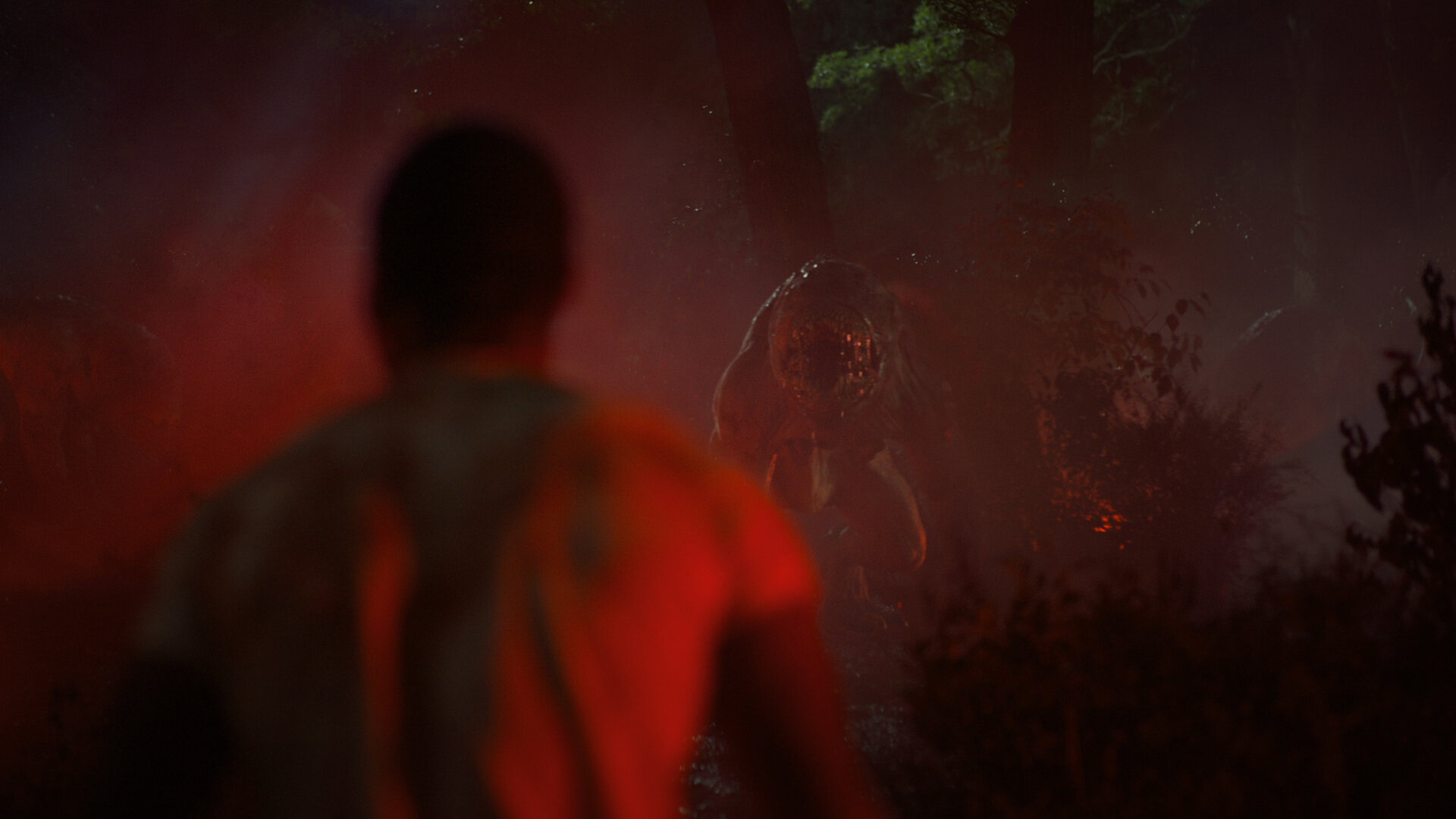
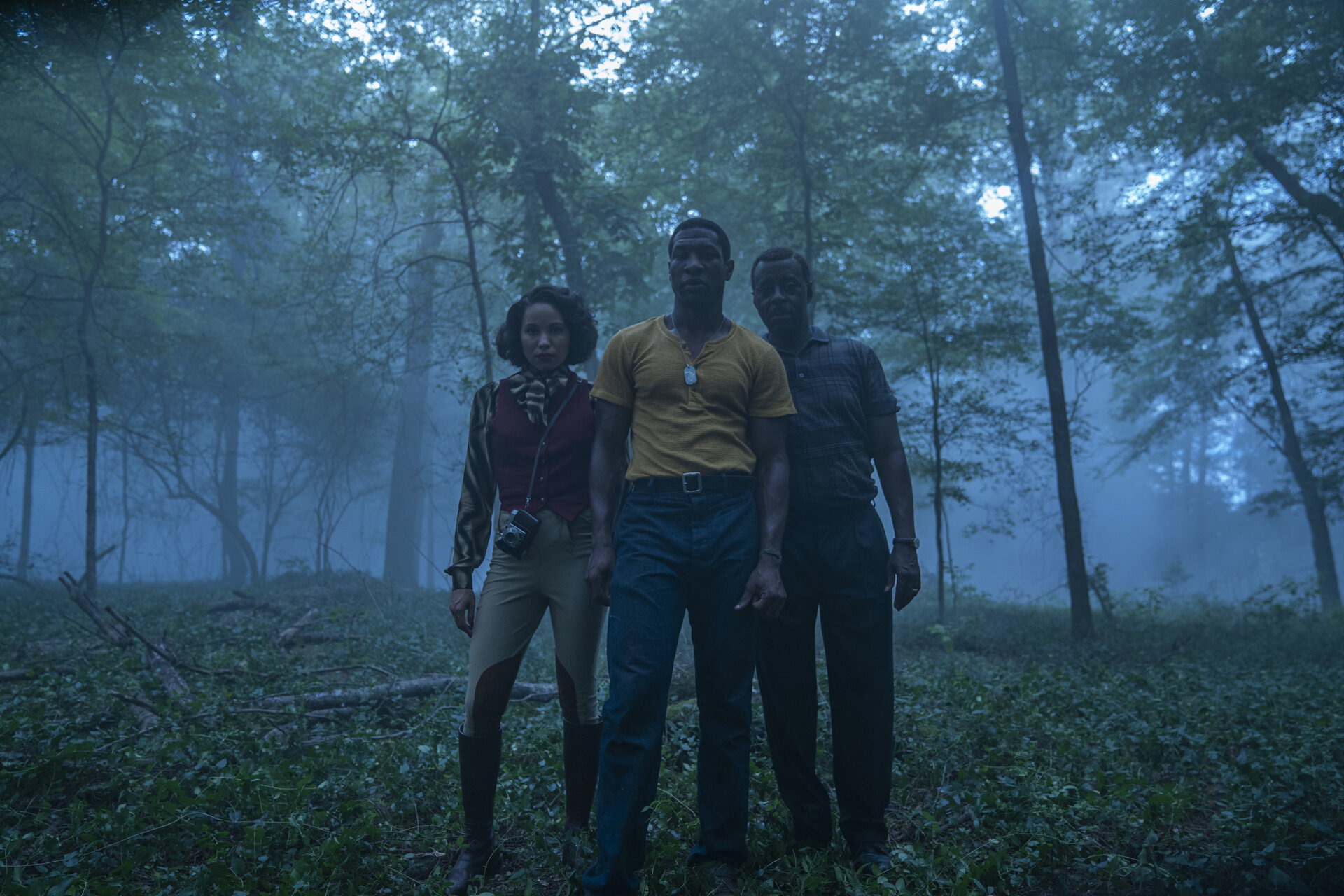
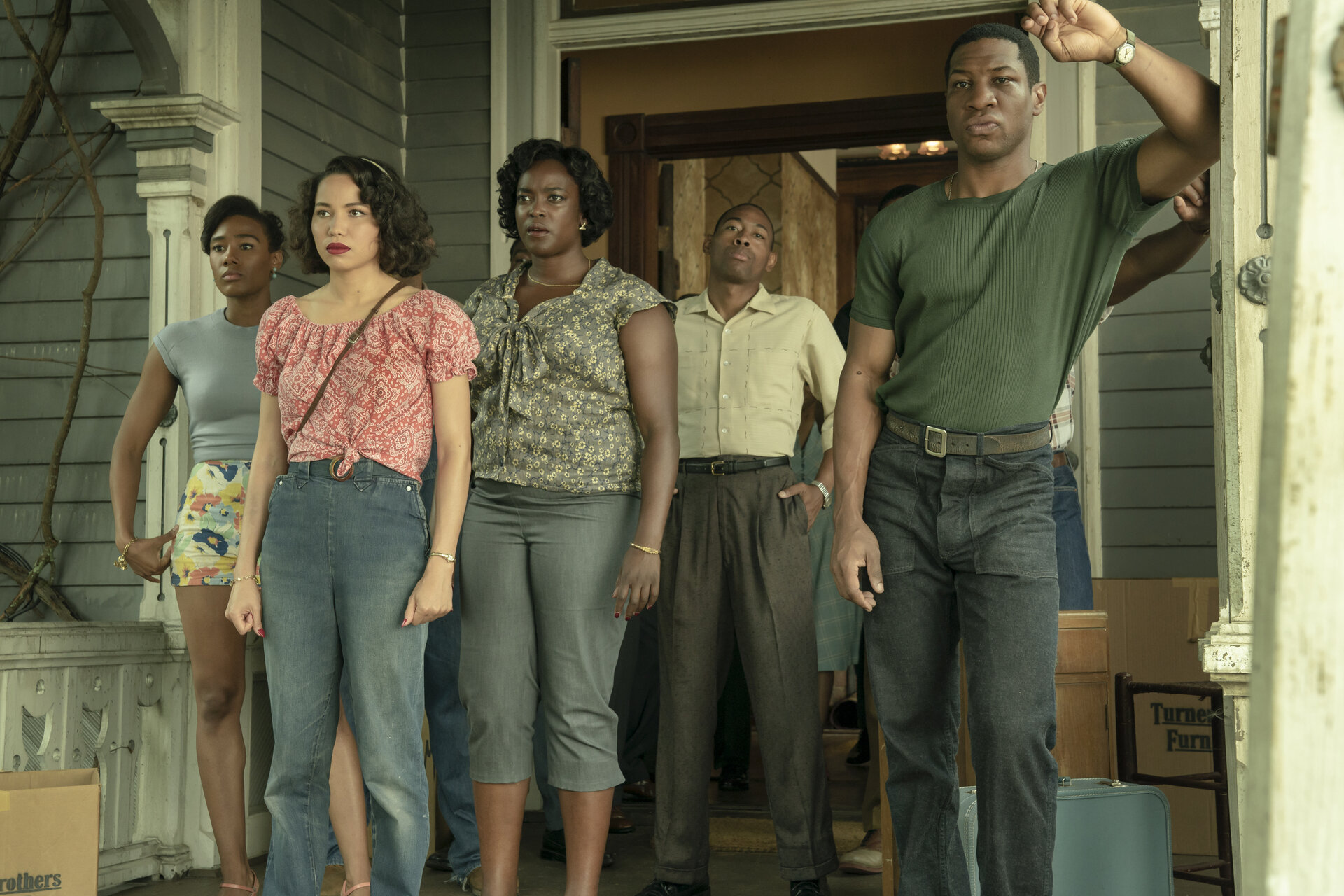
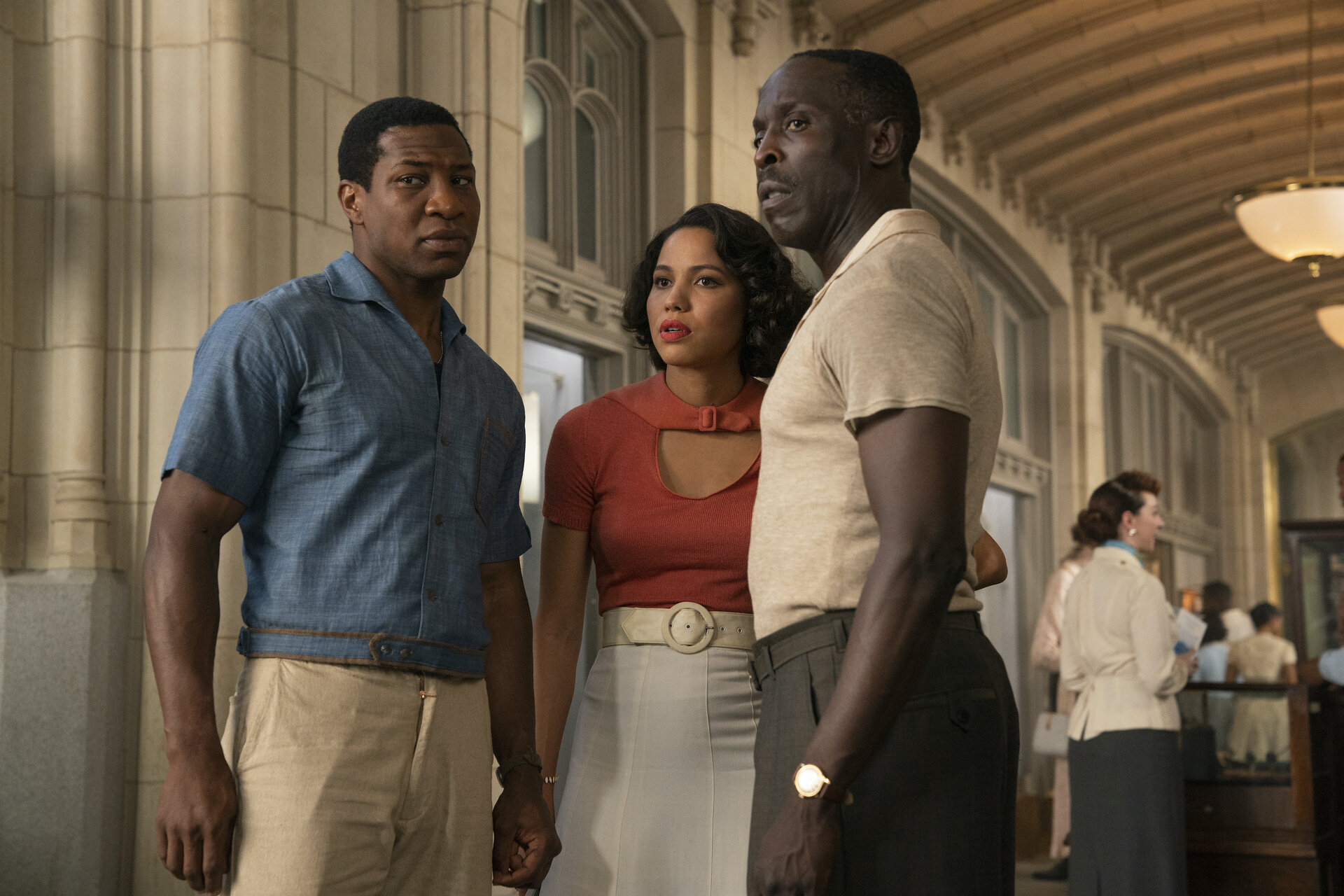
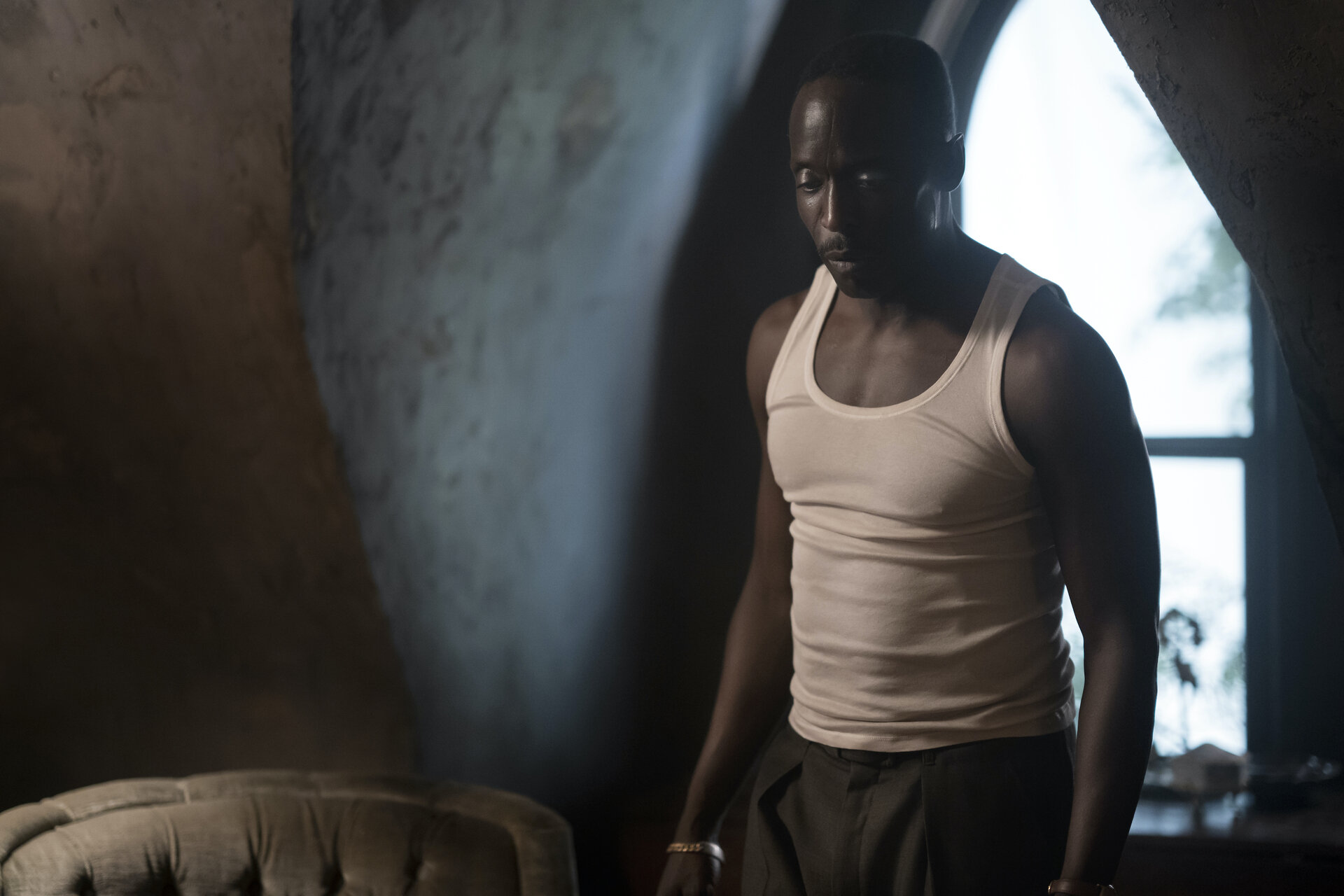
![[News] Shudder's SCARE ME Scares Up a Trailer before its October Debut!](https://images.squarespace-cdn.com/content/v1/5b39608d75f9eef54c62c3f0/1600094551981-ES1UDIVFNBKF85YKRMHG/scare-me-poster-final.jpg)
![[AYAOTD? Recap with Erin Callahan] S04E13 "The Tale of Train Magic"](https://images.squarespace-cdn.com/content/v1/5b39608d75f9eef54c62c3f0/1599790760112-J8W22EVIZR7F9E38OM93/4.13+Train+Magic.jpg)
![[Lovecraft Country Review with Joe Lipsett] "Sundown" Tackles Real World Situations with a Deliciously Pulpy Heart](https://images.squarespace-cdn.com/content/v1/5b39608d75f9eef54c62c3f0/1598141357175-C6IYNSMKOKOTGTOTLSEQ/LVC101_Shoggoth2%5B1%5D.jpg)
![[Lovecraft Country Review with Joe Lipsett] "Holy Ghost" Works When It's Not Being Bombastic](https://images.squarespace-cdn.com/content/v1/5b39608d75f9eef54c62c3f0/1598837841238-DN2C2A21GJ32HAXOZ9JL/naomi-mack-jurnee-smollett-wunmi-mosaku-keon-mitchell-jonathan-majors.jpg)
![[Search Party Review w/ Joe Lipsett] Episodes 4-6 Continues the Bleak Psychological Horror Streak](https://images.squarespace-cdn.com/content/v1/5b39608d75f9eef54c62c3f0/1611180083043-FN5B1C9B3B7LZU14R2AA/search-party_0%281%29.jpg)